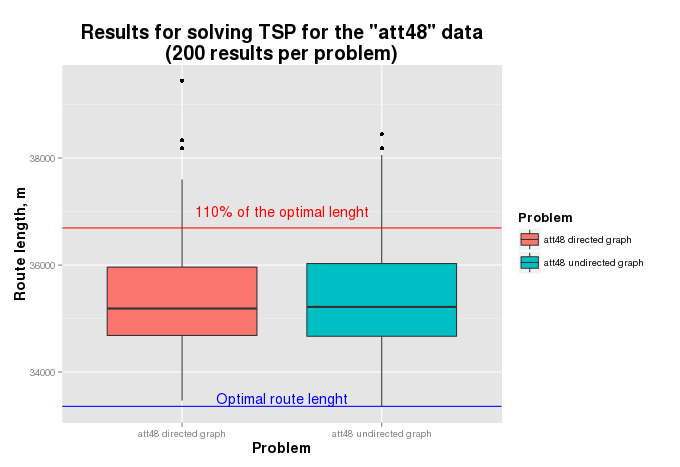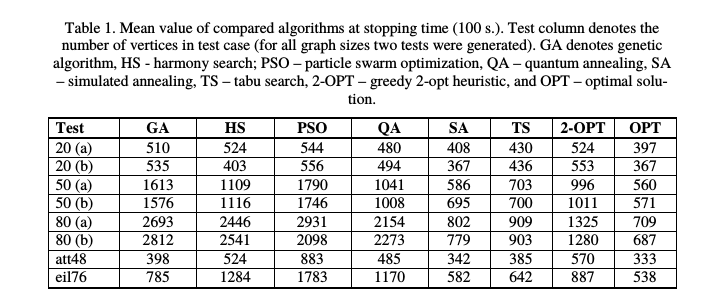I'm trying to develop my own algorithm for solving Travelling Salesman Problem (TSP) I tested it (in its current state) on the "att48" instance of the TSPLIB and got following results:

As we can see more than 3/4 of results are within 110% of the optimal route length. But in scientific literature they report for over 20 decades that their algorithms solve like 99% of the TSPLIB instances to 1% of the optimal distances (though where are their GIS implementations?!). So I wonder if there is for example a commonly acceptable threshold for the algorithm output to determinate whether it is garbage or can be used in real life? Or there are exists other means of TSP solver assessment?

